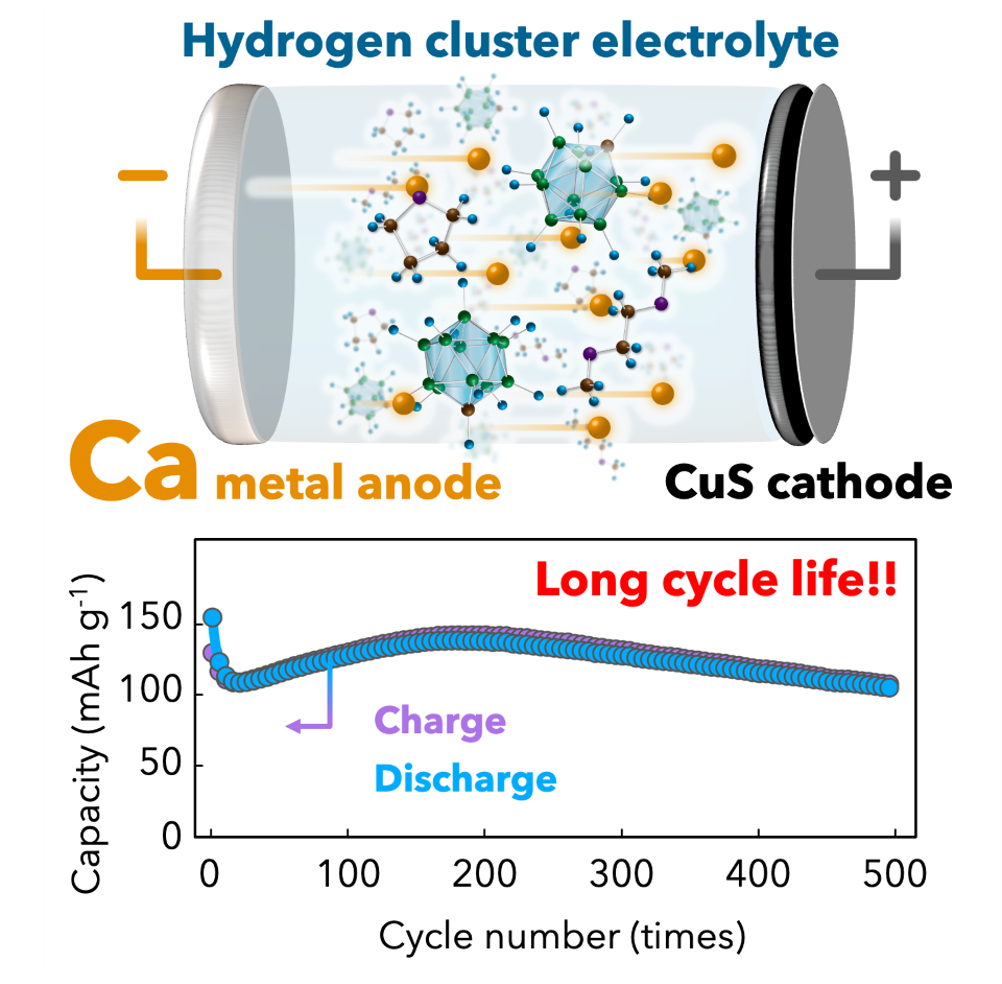Calcium metal batteries could provide an alternative to lithium-ion batteries (LIBs) as calcium is abundant, inexpensive and has higher energy density potential than LIBs. The element’s properties are also thought to help accelerate ion transport and diffusion in electrolytes and cathode materials, giving it an advantage over other LIB alternatives including magnesium and zinc.
Despite these advantages, calcium metal batteries face several challenges that must be overcome before they reach commercial viability. The lack of an efficient electrolyte and the absence of cathode materials with sufficient Ca2+ storage capabilities have proved to be the main obstacles.
In 2021, some members of the current research group provided a solution when they developed a new fluorine-free calcium electrolyte based on a hydrogen (monocarborane) cluster. The electrolyte is said to have demonstrated markedly improved electrochemical performances such as high conductivity and high electrochemical stabilities.
"For our current research, we tested the long-term operation of a Ca metal battery with a copper sulphide (CuS) nanoparticle/carbon composite cathode and a hydride-based electrolyte," said Kazuaki Kisu, assistant professor at Tohoku University's Institute for Materials Research (IMR).
Also a natural mineral, CuS has favourable electrochemical properties such as its layered structure, which enables it to store a variety of cations, including lithium, sodium and magnesium. It has a large theoretical capacity of 560mAh g-1, which is two to three times higher than present cathode materials for lithium-ion batteries.

Through nanoparticulation and compositing with carbon materials, Kisu and his colleagues were able to create a cathode capable of storing large amounts of calcium ions. When employed with the hydride-type electrolyte, they are said to have produced a battery with a highly stable cycling performance. The prototype battery maintained 92 per cent capacity retention over 500 cycles based on the capacity of the 10th cycle.
The group believes their breakthrough will help advance research into cathode materials for calcium-based batteries.
"Our study confirms the feasibility of Ca metal anodes for long-term operations, and we are hopeful the results will expedite the development of Ca metal batteries," Kisu said in a statement.
The team’s findings are detailed in Advanced Science.











Radio wave weapon knocks out drone swarms
Probably. A radio-controlled drone cannot be completely shielded to RF, else you´d lose the ability to control it. The fibre optical cable removes...